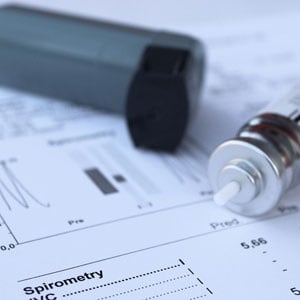
Associate professor Richard van Zyl-Smit, a consultant pulmonologist at the UCT Lung Institute and Division of Pulmonology, Groote Schuur Hospital and University of Cape Town answers some questions on asthma and inhalers.
Is it safe to use an inhaler if you don't have asthma?
Using any medication for a condition that you do not have is not advised. For asthma inhalers, however, the risks are relatively low compared to something like diabetic medication for example, which may cause a dangerous drop in blood sugar. The bronchodilator inhaler, or “reliever medication”, is used to relieve spasms in the airway muscles.
If you don’t have spasms, it will have no effect on the airways but potential side effects include a racing heart beat and feeling very shaky. The inhaled steroid inhalers will similarly have no beneficial effect except increase the risk for conditions such as oral candida, osteoporosis and cataracts, especially if used at high doses over a long period of time.
Read: How severe is your asthma?
How do doctors determine whether you need an inhaler or not?
A diagnosis is generally made based on a history of symptoms typical of asthma (intermittent wheezing, cough and shortness of breath), and then confirmed with lung function testing.
The asthma patient will typically have obstruction (limitation in airflow due to a narrowing of airways) on a lung-function test – either with a peak flow meter or a formal lung function. If this obstruction resolves after giving a patient a bronchodilator, a diagnosis of asthma is generally confirmed.
Read: WATCH: 7 odd things that can trigger this attack
How does an asthma inhaler work?
There are many physical types of inhalers – pressured sprays, dry powder inhalers, capsule inhalers – and these vary according to the company making them and the medication they contain. Overall, however, there are three major classes of medication contained in inhalers:
1. Short-acting bronchodilators are used for “rescue” when your chest is tight – these open up the airways.
2. Inhaled steroids target and reduce the inflammation in the airways, making them less likely to go into spasm. Inhaled steroids are the backbone of all asthma treatment.
3. Controllers are generally long-acting bronchodilators that help control symptoms.
Inhaling medication is most effective because it goes directly to the lungs where the problem is, reduces side effects and increases the effect of the medication.
Read: Asthma one of top 5 causes of death in US
Do you get different types of inhalers? What do they do?
All inhalers are designed to deliver medication deep into your lungs. The pressured sprays do so by spraying a puff into your airway as you breathe in. The dry powder inhalers require you to breathe in deeply to "suck" the medication into your lungs without any help from the device.
Although there are many to choose from, the cost, availability and ease of use generally dictate which one to use. Some people are unable to co-ordinate the "breathe-in and spray" to use a pressed device adequately, so a dry powder may be better; others are not able to generate enough inward breath force to breathe in the powder – so they find a spray type to be better.
Find the inhaler that you prefer, and use it as advised by your healthcare practitioner.
Read more:
10 famous people living with asthma
Study finds new lung transplant technique could save lives
Don't believe these asthma myths




 Publications
Publications
 Partners
Partners
















